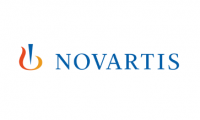-
Vantave’s innovative next-generation continuous blood purification equipment PrisMax has been released
- Source: drugdu
- 68
- November 9, 2024
-
How to layout after recall and reorganization? Philips CEO responds
- Source: drugdu
- 92
- September 26, 2024
-
FDA Says ‘No’ to Novo Nordisk’s Once-Weekly Insulin
- Source: drugdu
- 99
- July 16, 2024
-
New AI Transparency Rule Should Drive Higher Quality Tools & More AI Adoption
- Source: drugdu
- 116
- May 30, 2024
-
Research Shows Generative AI In The EHR Can Work Well, But Only With Human Oversight
- Source: drugdu
- 103
- May 6, 2024
-
Beijing Municipal Party Secretary Yin Li Met with Novartis Global CEO Wansheim
- Source: drugdu
- 116
- March 29, 2024
-
Swedish researchers develop new AI computer model to detect lymphatic cancer
- Source: drugdu
- 150
- March 16, 2024
-
NICE recommends two AI-powered software tools for stroke diagnosis in NHS
- Source: drugdu
- 85
- January 27, 2024
-
MHRA sets out regulatory roadmap to support safe access to medical technology
- Source: drugdu
- 96
- January 12, 2024
-
Weight Loss Drugs Will Have Impact Far Beyond Just On Drugmakers
- Source: https://medcitynews.com/2023/10/weight-loss-drugs-glp1s-digital-health/
- 219
- October 3, 2023
your submission has already been received.
OK
Subscribe
Please enter a valid Email address!
Submit
The most relevant industry news & insight will be sent to you every two weeks.













